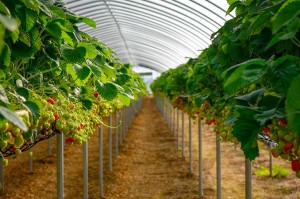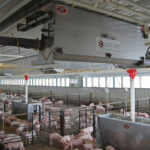One third of global food production is wasted every year.
MF: One third of global production wasted annually– that’s a huge amount. MB: Yes, it’s a very large figure. In developing countries, most waste happens in the earlier stages of the food supply chain, whereas in developed regions such as...
One third of global food production is wasted every year.
MF: One third of global production wasted annually– that’s a huge amount. MB: Yes, it’s a very large figure. In developing countries, most waste happens in the earlier stages of the food supply chain, whereas in developed regions such as...MF: One third of global production wasted annually– that’s a huge amount.
MB: Yes, it’s a very large figure. In developing countries, most waste happens in the earlier stages of the food supply chain, whereas in developed regions such as Europe, food is more likely to be wasted at the other end of the chain, when it lands in the hands of the processors, retailers and consumers. This leads to safe food going uneaten. It’s clearly an issue which must be addressed given escalating food demand and continuing poverty and hunger for many in developing countries. The issue is particularly topical at the moment considering that EXPO 2015’s theme is ‘Feeding the Planet, Energy for Life’ which has a heavy focus on food security, and therefore food waste.
MF: What is the EU’s strategy?
MB: In 2014, the European Commission put forward objectives for food waste reduction in the EU with the stated aim of reducing food waste by at least 30% by 2025. However, in its 2015 work programme, the Commission announced that it would withdraw this legislative proposal in favour of a new, more ambitious one to promote circular economy. This is the idea of reusing and recycling existing materials and products, aiming to ‘close the loop’ in order to avoid loss and waste. The European Commission has launched a public consultation on ‘Circular Economy’ in a bid to promote its new strategy on the subject which it is planning for late 2015. The consultation is open to everyone, so anyone should feel free to have their say if they would like to contribute!
To read the full article, please click here.




